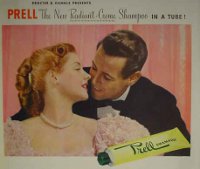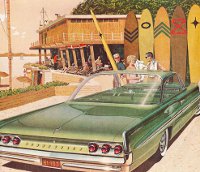There is a delightful episode in Chris Phillips’s play Elysian Fields, which was presented at the Kraine Theatre during this year’s New York Fringe Festival, when the characters Maggie (“the cat”) and Skipper, from Tennessee Williams‘s play Cat on a Hot Tin Roof, are talking. Skipper is recounting to Maggie the early years of his friendship with her husband, Brick Pollitt, and making a veiled confession about the tenacity of his attachment to Brick. He describes a hot southern afternoon as he watches an old tabby cat patiently riding out the uncomfortable afternoon heat on a rooftop, awaiting a patch of shadow to alleviate its situation. He is struck by the cat’s stoic forbearance. He has it in mind to be just like that cat in life, patiently staying put, expectant that what he desires will one day fall to him. This image is more famously invoked by Maggie in Williams’s celebrated play, when following Skipper’s death, she pleads for her grieving husband’s attention and affection. It’s a clever piece of writing, respectfully returning us to the allusive power of Williams’s theatrical storytelling.
The pleasures of Phillips’s play, and they are many, are watching well known characters from the works of Williams acting in freshly contrived scenes. He releases the characters from their celebrated, somewhat tragical cages, to breathe and talk again in earlier phases of their stories. Most especially he is resurrecting the ghosts of three deceased characters, figures whose tragic demise worked as triggers for Williams’ plays, A Streetcar Named Desire, Suddenly Last Summer, and Cat on a Hot Tin Roof. Allan, Sebastian, and Skipper never make appearances in these three plays, but their ghosts pervade the stories, propelling the action. They are all coded as homosexual and as such are emblematic of Williams’s relationship with his own sexuality and its configuration in dramatic works that powerfully addressed the social taboos of his time. Phillips, in large part, is respectful of the mores that prevailed during the period of rapid social evolution these theatre works spanned, from WWII through the dawn of the sixties counter cultural revolution. He is sensible too of the cultural status some of the characters have attained today. So he can throw us delicious treats with scenes in which a youthful Blanche DuBois succumbs to her own carnal appetite; Sebastian rubbishes his poetry and yearns to run through his mother’s garden setting the plantings on fire; and Brick and Skipper go at it in a chair as Maggie sleeps in the room next door. Whether or not Williams might approve such liberties is not so much the point as whether they hold up in context of the original plays. In a rush of desire the young Blanche might well have lost her affected little head, but did the playwright envision the spit-lubricated attachment we are presented with here between Skipper and Brick? The times were the times, and frustrated desire is most pointedly Williams’s theme, not clandestine liaisons. His dramas are filled with allusions to castration and lobotomy. Sex, for the principal characters, is an agent of destruction and chaos, rarely ecstatic release.
But perhaps that’s a quibble. Before the shadow of tragedy overtakes each tale, there is much to enjoy. Suicide and murderous vengeance take their toll on all our resurrected phantoms. Asking why Williams insisted on these endings for these characters is a bit like asking why Iphigenia had to be sacrificed at the beginning of the Trojan War. These are the original blood sacrifices that offend justice, that precipitate the action, that sow potential ruin for all in proximity. It’s one thing to play at revisionism in works like L. Frank Baum‘s “The Wonderful Wizard of Oz”, but something else to tangle with the complex psychological, elaborately theatricalized characters of Williams the playwright. Acts of redemption are nice, but can Phillips really have these characters ask their original author why they had to die thus? As affecting as this is, it is a contemporary sensibility addressing that of another era. If you begin that process, there is no likelihood it could ever end. And perhaps there’s something willfully anachronistic about it. Which is perhaps why in the final act we are left with a fantasy realm, with neither recourse to Williams’s world, or our own. Here at least, the three fated figures can arrange themselves into a somewhat classical tableau of heroic brotherhood, no longer alone, rinsed temporarily of the tragedy that hangs over them. Fanciful and affecting sure, but you can’t file down all of the sharp corners of life, in the real world or the fictional one; not if you want anything to be worthy of the term tragedy.
The production, by Revolve Productions, glides seamlessly from opening to end, figured with a minimum of props, some well-used lighting, and just five actors. Amanda Kruger, as the only female cast member, has the unenviable task of filling some major iconic pumps in the parts of Blanche, Catherine, and Maggie, and she does very nicely. Muscular performances are turned in by all the men, Scott Hinson (Sebastian), Aaron Hartzler (Skipper), and Daniel Marks (Brick), with the stand-out Miles Cooper (winner of a Fringe 2011 acting honor) as young Allan, disarmingly vulnerable as he approaches his shrouded desire nature. With his co-director, John Michael Beck, Phillips pulls out all of the drama written in to this accomplished new play, and New York can only hope that this production, so cruelly cut short by the onslaught of Irene, will rise again for a longer run. It should not be short of a captivated audience.
~~~
Elysian Fields ran until August 26, 2011 as part of the New York International Fringe Festival.








{ 0 comments… add one now }